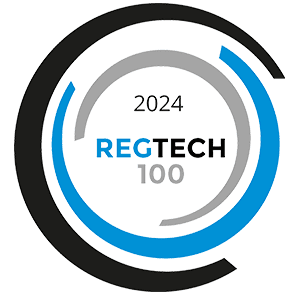In December 2018, the SEC issued its 2019 examination priorities for 2019. Due to the government shutdown from December 2018 through January 2019 the SEC was late getting started with its examination schedule for the year. Although late getting started, there is a good probability that they will start, and finish strong this year.
With the above said and taking into consideration SEC Commissioner Jay Clayton’s focus on protecting the retail investor, it is important for all SEC registered investment advisers to ensure their written policies and procedures are in place, in good order and that the adviser is in compliance. Additionally, all SEC advisers should prepare as if they know the SEC will be paying them a visit this year. In order to assist with this preparation, below is a summary of the SEC’s 2019 exam priorities and what they will more than likely be looking at during their routine audits this year.
Fees
Although fees are always a priority, SEC examiners will be focusing on fees and the disclosures related to the adviser’s fees and expenses clients will incur. Therefore, it is extremely important to ensure the adviser’s ADV Part 2A discloses in detail the fees charged by the adviser. The disclosure should include a description of how often fees are charged, the formula used in the calculation and how the adviser determines the value of the assets used to calculate the fee; daily average balance, statement balance, balance provided by the custodian on a particular date, etc. In addition to fees, the adviser needs to ensure that all brokerage and other fees are disclosed to the client; transactional fees, mutual fund management and 12b-1 fees, ETF management fees, maintenance fees, etc.
Custody
Another common hot topic for regulatory examiners is the safety of client assets. Again, this year the SEC will focus on areas of risk regarding the protection of client assets.
Standing Letters of Authorization (SLOA)
A new concern for advisers as of February 2017 is SLOA’s. If your adviser maintains SLOA’s with its clients, it is very important that the CCO or their designee review the SEC’s February 2017 SLOA Custody no action letter and contact the adviser’s custodian to ensure that none of the SLOA’s on file for any client will trigger an independent, unannounced, annual audit. If there are any SLOA’s that do trigger the requirement of the audit, it is imperative that the adviser engage the cervices of a qualified CPA to conduct the audit, and contact the custodian to terminate those SLOA’s, if the cost of the audit outweighs the benefit of having the SLOA on file for the adviser’s clients.
Asset Verification
Although a tedious and time-consuming process, it is important for advisers to reconcile client trades on a regular basis. This will ensure that orders are being executed, clients are receiving correct pricing and there are no issues with the custodian’s trade and reporting practices. Although it is common for advisers to rely on the custodian to correctly execute trades and report on client assets, custodians do make mistakes, and at the end of the day, as a fiduciary the adviser will be held liable for mistakes made by the custodian if not caught through regular reviews by the adviser.
Misappropriation
This issue is pretty much common sense. However, with that said, advisers with multiple employees and/ore registered investment adviser representatives (IAR) need to ensure there are policies and procedures in place, and they are being followed, for the supervision of the adviser’s personnel. This includes strict adherence to the check and securities blotter, review of client trades executed by IAR’s, review of client account statements, review and approval of outside businesses, etc.
Conflicts of Interest
It is extremely important to review the adviser’s business model and determine all existing conflicts of interest. This would include related business entities, other registrations of the registered representatives of the adviser, outside business practices of all registered and non-registered personnel, and any and all compensation outside of advisory fees received by the adviser from its clients. The CCO or their designee needs to ensure these types of relationships and the conflict of interest created by these relationships are disclosed in detail within the ADV Part 2A.
Borrowing from Money Clients
One would think that common sense dictates that it is not acceptable to take loans from clients. However, it has been known to happen, and this year the SEC will be looking for it. The most important thing to remember about taking loans from clients is, don’t do it. There is never any scenario, what-so-ever, where it is acceptable to take a loan from a client.
Seniors
The adviser community is constantly being reminded of its fiduciary duty it has to its clients. It is extremely important to be cognizant of this duty when dealing with seniors. The SEC, States and many other regulators are focusing on financial exploitation of seniors. CCO’s will want to ensure that their policies and procedures are amended to address the adviser’s handling of its senior clients. The procedures should require the adviser to conduct more frequent reviews of the senior client’s suitability profile, what warning signs the adviser looks for to determine that a client may be losing control of their faculties, how and to whom the adviser will report this type of issue and training of personnel on how to deal with senior clients and recognize issues such as memory loss or signs that they are being taken advantage of.
Compliance is a task most do not like dealing with. It is time consuming, costly and for smaller advisers, interferes with the adviser’s ability to manage client accounts. Unfortunately, it is a part of the business that is never going away. With that said, make sure there is a compliance program in place and that it is being adhered to, and most importantly, don’t wait until the SEC calls to schedule an exam to roll out a compliance program.






